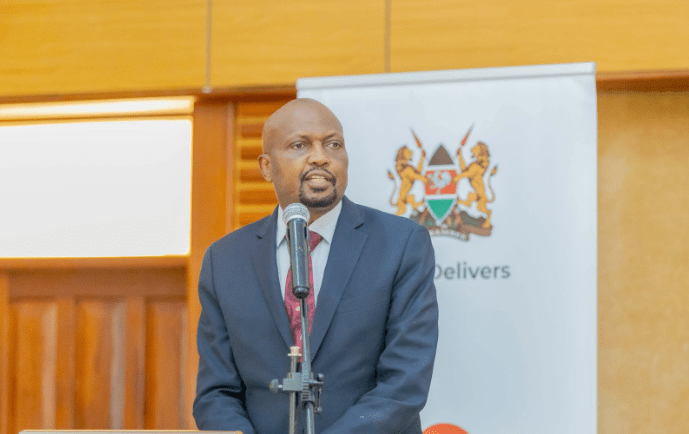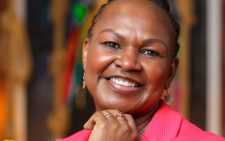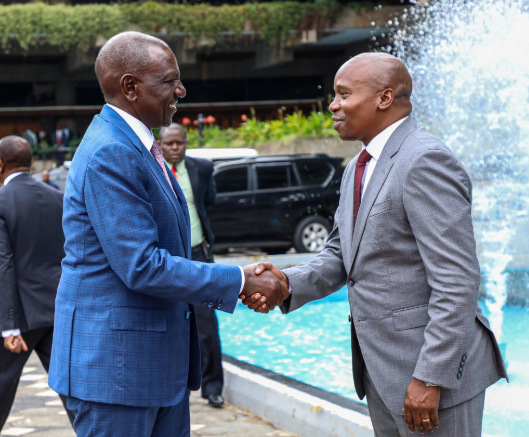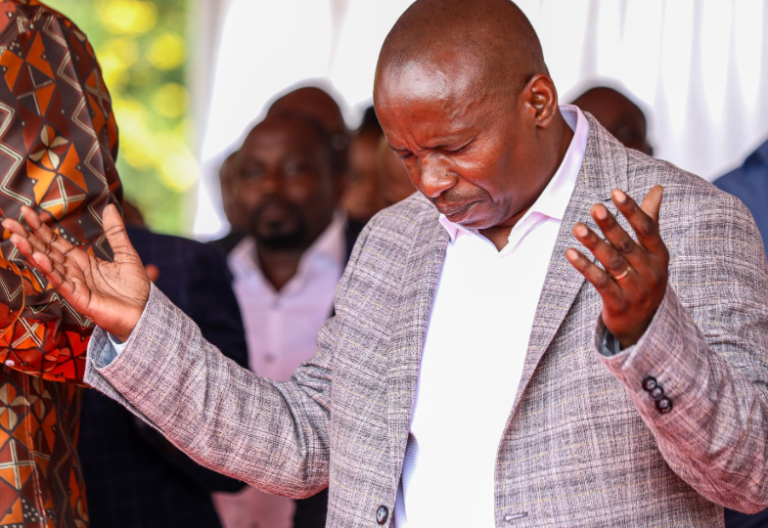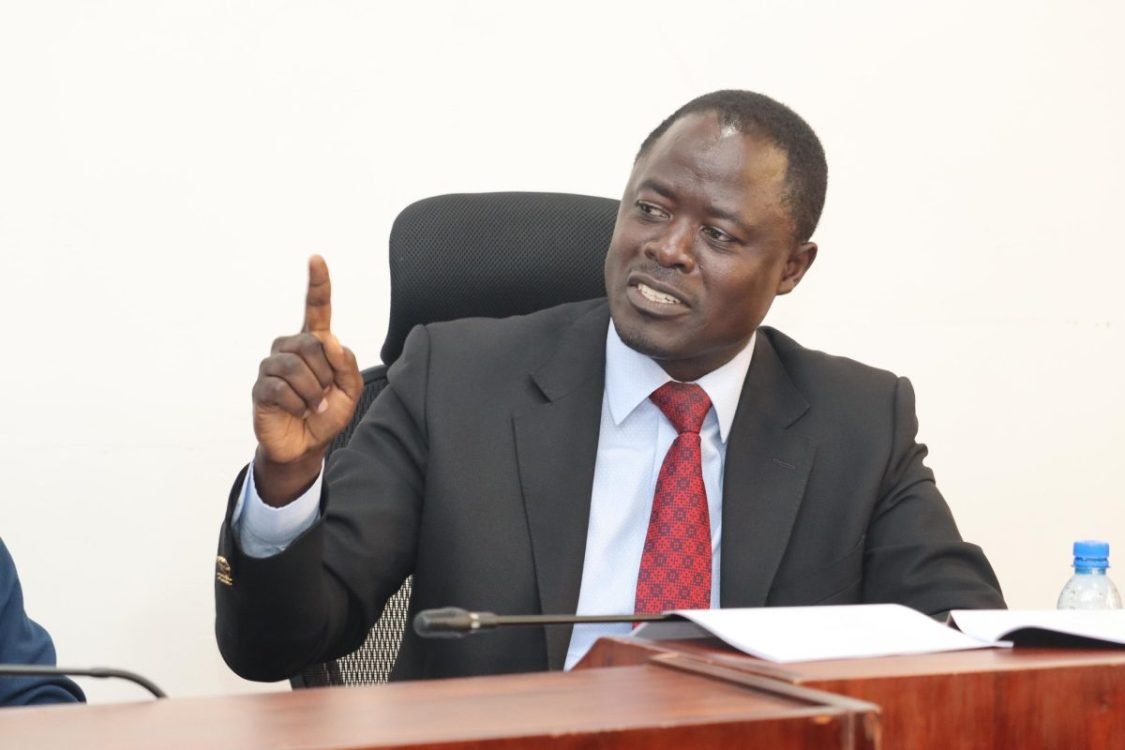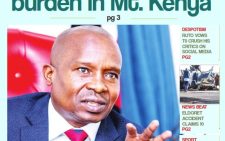Two main bills likely to derail Budget Speech
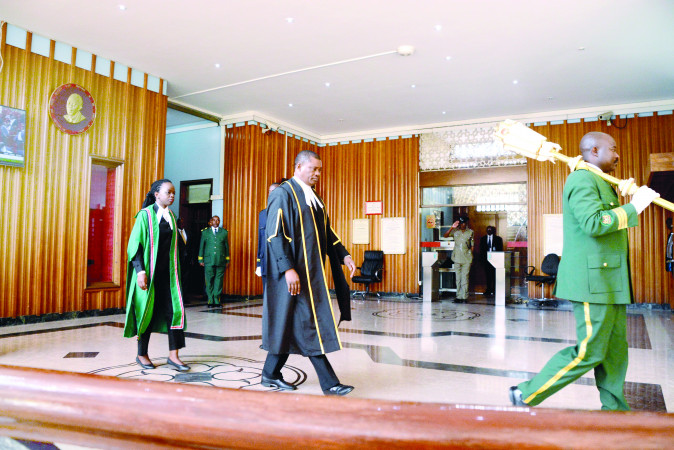
Reading of this year’s national Budget set for April 7 hangs in the balance after Parliament wrote to National Treasury Cabinet Secretary Ukur Yatani informing him that he will not be allowed to present it before passage of two crucial Bills.
In the letter, the House Business Committee (HBC) says it will be unconstitutional to present the Budget estimates without passage of the Division of Revenue Bill and the Finance Bill.
The House committee is charged with planning a business to be transacted by the House without which Parliament is paralysed. “The committee appreciated that the proposed dates are in keeping with the practice set in 2016/17 with respect to processing of Budget-related matters during an election year. The committee, however, asked that you be notified that the two Bills must be passed before then,” reads the letter signed by Serah Kioko for the Clerk of the National Assembly, which is copied to Principal Secretary Julius Muia.
Proposed date for speech
“This is to acknowledge receipt of the said letter conveying the proposed date of 7th April 2022 for the public pronouncement of the 2022/23 Budget Highlights and Revenue Raising Measures. We brought the request to the attention of the House Business Committee during its last meeting,” Kioko says.
According to the committee, provisions of section 39 of the Public Finance Management Act 2012, as read together with the High Court ruling of 11th December 2020 (Constitutional Petition No. 232 of 2019 as consolidated with Petition No. 277 of 2019), now imply that the presentation of the Budget Policy Highlights (Budget Speech), the consideration of Budget Estimates and the subsequent Appropriation Bill are to be preceded by the passage of the annual Division of Revenue Bill by Parliament (both Houses).
“The Division of Revenue Bill 2022 is currently in the Senate, having been passed by the National Assembly. Sections 39A and 40 of the Public Finance Management Act, 2012, presupposes the presentation of the Budget and the annual Finance Bill after the submission of the National Government’s Budget Estimates to the National Assembly,” states the committee.
The committee, which is chaired by Speaker Justin Muturi, further states: “It is therefore hoped that the foregoing matters will have been fulfilled before 7th April 2022. If not, the House is available between 7th April 2022 and 14th April 2022 and between 10th May 2022 and 9th June 2022, for purposes of the presentation of the 2022/23 Budget Highlights and Revenue Raising Measures.”
“In the meantime, it may be advisable for the National Treasury to seek expedited processing of the Division of Revenue Bill 2022 with the Senate,” says the committee.
Last Thursday, Muturi ruled that two requisite Bills must be passed as required by law before the Budget statement is presented. Parliament is expected in law to pass the Division of Revenue and the Finance bills before the Treasury Cabinet Secretary presents the statement.
Presentation of the Budget statement is expected to be the last for Treasury Cabinet Secretary Ukur Yatani under the current administration.
But Muturi warned yesterday that it will be a move in futility for the CS to present his statement without the two Bills having been passed. “There is that looming danger that includes allowing him to set his foot here to read the Budget,” Muturi said.
Garissa Township MP Aden Duale raised the matter of constitutionality on the Budget process. “Mr Speaker, the budget-making process is clear and cannot be interfered with by the National Treasury,” Duale said. He asked the Speaker to rule whether the Treasury CS has violated the Constitution by publishing the date for the Budget Statement and whether the CS has the authority to determine the date for the Budget Statement in view of these issues.
According to the MP, once the House has approved the Budget Policy Statement (BPS), with or without amendments, the next step is preparation, tabling and approval of the Division of Revenue Bill (DoRB) and the County Allocation of Revenue Bill (CARB),” said Duale.
Take about a month
He added: “Then, the Budget Estimates can be tabled, considered and approved via a House Resolution through the Committee of Supply. This is the only time the House can allow the CS to make policy pronouncements and revenue raising measures in form of a Budget statement.”
The DoRB is currently before the Senate for debate after which it will be taken back to the National Assembly. However, should there be amendments by the Senate, a Mediation Committee will be formed to seek concurrence. This is most likely to take a month before it is dispensed with by the two Houses of Parliament.
Another factor likely to derail the presentation of the Budget will be the Finance Bill, which must be passed before the CS reads his speech. Debate and passage of the Finance Bill is likely to take more than a month, considering that there must be public participation, as stipulated by law.
A three-judge bench, in a ruling on a petition by rights activist Okiya Omtata, ruled that the Finance Bill must be passed 90 days after passage of the Appropriation Bill. The Finance Bill would normally be issued after the Annual Budget speech but, following the ruling in the Omtata petition, it must be done before the presentation.
Duale, while seeking the Speaker’s intervention, said it was important for Parliament to note that, subject to the High Court ruling, the Division of Revenue must be approved by Parliament before tabling of the Budget Estimates.
A three-judge bench comprising Justices Teresia Matheka, Antony Ndung’u and Jairus Ngaah ruled in 2019 that the National Budget cannot be read or unveiled before Parliament approves how the National Government will share its resources with the counties. The court held that any future tabling of Budget policy highlights without inclusion of the Division of Revenue Bill would be unconstitutional.
“A declaration is hereby issued that any subsequent tabling of the Budget policy highlights and the legislative proposal by the CS Finance without the passing, or including of, the Division of Revenue Bill, is illegal,” the court ruled.
Duale noted that the DoRB has not yet been approved, the debt ceiling proposal has not been tabled, and the estimates have also not been tabled. “These need to happen before the CS can imagine being called upon to deliver his Budget Statement,” said the former Majority Leader.
